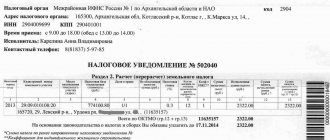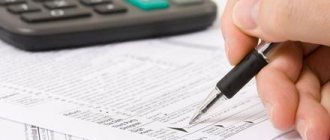According to the legislative acts in force in the country, the use of land is carried out on a paid basis. Even if a citizen is the owner of a land plot, he pays a certain amount to the state treasury as land tax. With the revision of the procedure for its calculation, these tax obligations have become more burdensome for the family budget. This is especially true for those who do not have income from work and are engaged in running a personal household. Such citizens belong to vulnerable segments of the population and can count on benefits. Separately, it is worth considering the question of the conditions under which land tax is calculated for pensioners in 2021.
Short answer
At the legislative level, all owners are equal - be it a young owner of a cottage with a land plot of several hectares or an old man with a country house on land of several hundred square meters. They all must pay the appropriate tax.
But it is impossible to compare the income of working citizens and people of retirement age with modest social benefits called pensions. Therefore, the Duma, at the instigation of the President, made changes to the Tax Code: a tax benefit for pensioners appeared. Its essence is that this category of citizens does not pay tax on 6 acres of land.
Let's show how this works with an example. Pensioner T. has real estate in the form of a dacha and a garage, built on a plot of land with an area of 10 acres.
In accordance with the new rules, land tax will be charged only on 4 acres (10-6).
Legislative regulation of the issue
The main part of the issues related to land tax is regulated by a separate chapter 31 of the Tax Code of the Russian Federation. This chapter covers in particular the following topics:
- categories of payers;
- object of taxation;
- tax base;
- interest rate;
- taxable period;
- possible benefits;
- procedure for calculating and deadlines for paying taxes.
In particular, the following categories of persons are distinguished among payers:
- individuals (citizens and entrepreneurs);
- legal (enterprises, institutions, organizations).
Since there is no more detailed division of payers into categories, we can assume that the regulation of the tax payment process in accordance with federal legislation is carried out precisely in the order given in this chapter. However, it is worth considering the fact that this fee is classified as local, therefore regional authorities have the right to introduce some features into the process of its establishment and calculation.
In particular, this applies to certain categories of payers, including pensioners. This is usually documented in special regulations (for example, in regional laws).
If local legislation does not cover certain issues related to this fee (for example, its rate or the presence of additional preferential categories), then in practice the corresponding provisions of federal legislation (that is, the Tax Code of the Russian Federation) are applied.
What is land tax paid for?
The objects of land tax assessment for pensioners are plots of land that belong to them by right of ownership or are in free use on an indefinite basis (the main feature: can be passed on by inheritance).
In this case, the plots must be located within the same municipality and have a cadastral number in the unified land register indicating the area, delineated boundaries on the map, category of land allotment and coordinates of each boundary pillar.
Land tax is not charged:
- leased;
- transferred for free use on an urgent basis;
- included in the forest and water resources of the Russian Federation;
- under objects of culture, history, archeology included in the UNESCO list;
- withdrawn from circulation completely or having restrictions (national parks, nature reserves, military bases, prisons, colonies, camps, burial grounds, cemeteries).
An example of applying the benefit - if you own 2 plots
For example, when a person has the rights to own 2 plots, measuring 9 and 15 acres , then a rate of 0.3% is applied to such objects. One of the plots is located closer to a populated area, for this reason its cadastral value is higher compared to the second.
The cost of one hundred square meters in this case is 340 thousand rubles. For another plot of land, this price is 210 thousand.
A person can choose only one plot to use the preference. If this is the first plot, then 9 – 6 = 3 acres. Only for this volume of property will you need to pay tax. You will need to multiply the rate by the cost according to the cadastre by the rate = 3 * 210,000 * 0.3% = 1890 rubles will have to be paid to the treasury.
If the full cost of the tax had been paid, the amount would have been 5,670 rubles (9 * 210,000 * 0.3%). The savings amounted to 3,780 rubles.
Thus, the abolition of the tax for persons who have retired has not occurred at the present time. It is envisaged to establish preferences at the federal and regional levels.
Who pays land tax
Land tax is paid by individuals and legal entities who own and use land plots. The basis for payment are notifications in written (sent by mail) or electronic (visible in the Personal Account on the Federal Tax Service website) form.
Payment is made in accordance with the deadlines approved by regional entities, but not earlier than February 1 of the year following the reporting period. Those. For 2021, land tax can be paid after 02/01/2021.
Do pensioners pay land tax?
Do pensioners have to pay land tax? Yes, because In the Tax Code of the Russian Federation, all owners and users of land plots are indicated as land tax payers, regardless of their age and status (residents or non-residents of the Russian Federation).
How is the amount of the mandatory payment calculated?
What data is used?
When calculating land tax, the following indicators are used:
- The cadastral value of this land plot as of January 1 of the current year;
- Share of ownership in a land plot;
- Established land tax rate;
- Ownership coefficient.
The ownership share is determined as a fraction showing how much of a given land plot the pensioner owns.
The ownership coefficient is used if the pensioner does not own the plot for a full year and reflects the number of months of ownership in the specified year.
Calculation example
The tax has been calculated. Pensioner Ivanov owns a plot of land worth 2,560,000 rubles. The plot is completely his property, he owns it all year.
The tax rate is set at 0.3%.
In this case, the tax amount will be equal to: 2560000 x 1 x 0.3% x 1 = 7680 rubles.
Land tax benefits for pensioners
Tax benefits for pensioners for paying land tax can be of several levels and are prescribed not only in the Tax Code of the Russian Federation.
Federal benefits
Exemption of owners of movable and immovable property of retirement age from payment of relevant taxes can be carried out on the basis of various Federal Laws and the Tax Code of the Russian Federation. Thus, various federal laws provide exemption from land tax:
- heroes of the USSR and Russia;
- WWII participants;
- Chernobyl survivors (military, specialists and workers who participated in the liquidation of the consequences of the Chernobyl accident);
- blockade survivors - people who survived the siege of Leningrad;
- disabled people of groups 1 and 2, etc.
Attention: a complete list of persons exempt from paying all types of property taxes on the basis of the Federal Law can be viewed on the Federal Tax Service website.
In addition, representatives of small indigenous peoples living in the northern regions of the country, Siberia and the Far East, as well as their communities that use land plots to preserve and develop their ethnicity: way of life, crafts, management, but already on the basis of the Tax Code of the Russian Federation.
Also, the Tax Code of the Russian Federation provides benefits for all types of pensioners in the country in the form of reducing the area of the land plot on which the tax is calculated by 600 square meters. m (clause 5 of article 391 of the Tax Code of the Russian Federation).
A reduction in the tax base (tax authorities call a tax deduction) is carried out in relation to 1 plot of land. At the same time, the pensioner retains the right to make a choice if there are several plots of land, regardless of the category of land, type of use (ownership or perpetual free use) and location.
Let us illustrate this with several examples.
1. Pensioner L. has two plots: 500 and 700 m2 It seems more logical to make a deduction from 7 acres. But the cadastral value of a smaller plot is almost 2 times higher. Therefore, an application is submitted to deduct 5 hectares from a smaller plot and 1 hectare from a larger one. The law allows such manipulation.
2. Family couple A. of retirement age own 12.6 acres of land under a private house in a rural area. They are registered to the head of the family. You had to pay for 660 m2 of land. On the advice of the tax inspector, they re-registered the plot for two: the husband 6.6 acres, the wife exactly 6 acres. As a result of this operation, the tax base was reduced to 60 m2.
Important: with the increase in the retirement age, from 2021, deductions for paying land tax for women will remain from the age of 55, for men - from the age of 60.
Local benefits
Land tax is a municipal type of taxation. This means that the Legislative Assembly of federal entities, as well as the cities of Moscow, St. Petersburg and Sevastopol, can establish additional benefits for pensioners, as well as other categories of taxpayers, for example, exempt labor veterans, members of a gardening partnership, persons , over 80 years old, etc.
You can find out about the existence of additional benefits in each region here or call tel. 8 800-222-22-22 (Federal Tax Service contact center).
Who doesn't pay land tax?
For 2021, those categories are prescribed that are exempt from taxation on summer cottages, the area of which does not exceed 6.0 acres of land.
These categories include:
- Citizens who have the status of Hero of the USSR or the Russian Federation;
- People with disabilities of the first group, as well as the second group;
- People of retirement age who are WWII veterans;
Veterans of Labor;- Participants or veterans of combat operations;
- Military pensioners;
- Liquidators during disasters at nuclear power plants;
- Liquidators and nuclear weapons testers;
- Nuclear scientists who have received radiation sickness due to exposure;
- Citizens with old age pensions.
Procedure for applying for benefits
Benefits for paying land tax are of a declarative nature: if there is no corresponding application to the tax and duties inspectorate, there are no benefits. This statement also applies to the federal deduction from the tax base in the amount of 6 acres.
Registration of benefits is carried out in several stages:
- an application is written to the Federal Tax Service for the provision of benefits;
- documents are collected;
- the application, along with the collected documents, is transferred to the Federal Tax Service, and to any one, not just at the place of residence.
Statement
If you plan to visit the tax office in person or send documents by mail, an application for a land tax deduction must be completed on paper. Previously, it was written in free form. Since 2021, a sample form developed by the Federal Tax Service has been in effect (you can download it here).
It must indicate:
- name of the Federal Tax Service where the application is submitted;
- Full name of the payer and his residential address;
- cadastral number of the land plot;
- the basis for its use;
- grounds for obtaining a deduction or exemption from payment;
- attached list of documents;
- date of writing and signature.
Completing a package of documents
To receive a deduction you need only 3 documents:
- statement;
- photocopy of the main pages of the passport;
- copy and original of the pension certificate.
Where can I find out about tax benefits in Moscow?
In order to find out what tax fees exist in the capital's municipalities, you need to visit the district administration in the capital's district, or seek information from the territorial department of the Federal Tax Service of the Russian Federation at the place of permanent residence of the pensioner, or his place of registration.
If there are municipal exemptions for this category, they will still not apply until the pensioner submits the necessary documents to the tax inspector and writes an application for an exemption for a summer cottage plot.
Transfer of documents to the tax office
There are several ways to submit documents to the Federal Tax Service:
- during a personal inspection visit. The method has both pros and cons. The disadvantages include the loss of time. There are several advantages:
- You don’t have to fill out an application - the inspector will type it on the computer.
- An answer will be given immediately regarding acceptance of the deduction or refusal.
- All mistakes made when filling out the papers yourself will be detected and corrected.
- The visitor can personally verify that the deduction has been accepted.
- through MFC. The procedure is paid, but frees you from routine work (the application will be filled out by a service employee in the presence of the client);
- with the help of a legal representative with a power of attorney certified by a notary;
- by registered mail with acknowledgment of receipt. It must contain a list of the attached documents, and copies of the passport and pension book are certified by the head of the post office.
The development of IT technologies allows you to use one more method: through your Personal Account on the Federal Tax Service website. Instructions are presented in detail, with photographs, in the work “Transport Tax for Pensioners.”
Summarizing
As we can see, Russian tax legislation is not the most friendly to summer residents and owners of country houses, but it has quite a lot of loopholes. The extensive list of categories of people entitled to benefits also inspires optimism. In each specific situation, consultants and FORUMHOUSE participants experienced in tax battles are ready to provide advice - you can share it in the Real Estate Taxes section of the forum.
Also on FORUMHOUSE you can find out how to request a recalculation of property taxes and read an article on how to calculate and dispute property taxes.
Types of real estate to which the benefit applies
The benefit in the form of exemption from NIFL covers the following DIFFERENT TYPES of real estate:
A pensioner who owns several real estate properties of the SAME TYPE can, at his discretion, choose the one that will be exempt from NIFL (for the rest he will have to pay tax, “like everyone else”).
Of course, in such cases it is advisable to apply the benefit to the most expensive object.
Tax rate in the Moscow region
Land tax in the Moscow Region (hereinafter - MO) is calculated according to 3 types of fiscal rates:
| Purpose of the site | Tariff (% per annum of the cadastral value of the property) |
| 0,3 |
| Construction of a country house | 0,17 |
| Use of land for other purposes | 1,5 |
The Moscow Region is divided into 35 districts - each has its own tariff. Land tax for pensioners in the Moscow region - table of interest rates:
| Municipal district of Moscow region | Fiscal tariff (% per annum of the cadastral value of the property) |
| 15 of them charge a maximum of: | |
| Volokolamsky | 0,3 |
| Voskresensky | |
| Dmitrovsky | |
| Egoryevsky | |
| Zaraisky | |
| Istra | |
| Kolomensky | |
| Lotoshinsky | |
| Lukhovitsky | |
| Mozhaisky | |
| Naro-Fominsk | |
| Serebryano-Prudsky | |
| Taldomsky | |
| Shatursky | |
| Shakhovsky | |
| A fixed tariff is established for all owners of garden plots: | |
| Mytishchensky | 1,5 |
| The rate fluctuates between 0.07–0.3: | |
| Ramensky | 0,07–0,3 |
| Chekhovsky | 0,08–0,3 |
| Odintsovsky | 0,1–0,3 |
| Pavlo-Posadsky | |
| Pushkinsky | |
| Sergiev Posadsky | |
| Klinsky | 0,15–0,3 |
| Leninist | |
| Orekhovo-Zuevsky | |
| Serpukhovsky | |
| Solnechnogorsk | |
| Kashirsky | 0,2–0,3 |
| Krasnogorsky | |
| Lyubertsy | |
| Noginsky | |
| Podolsky | |
| Ruzsky | |
| Stupinsky | |
| Shchelkovsky | |







